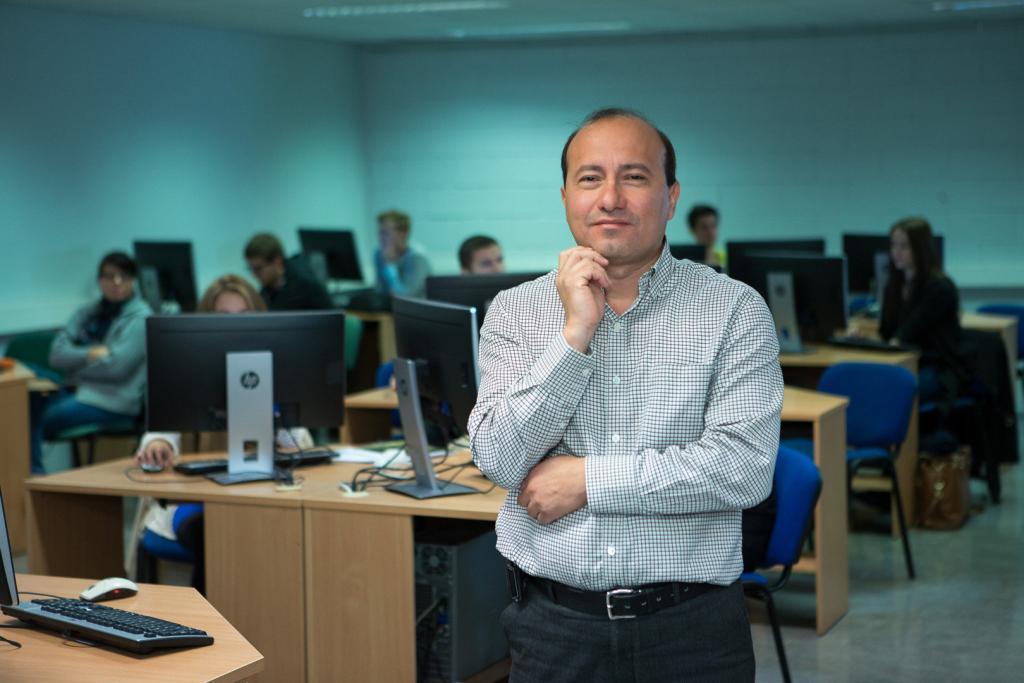Marlon Dumas, a professor of information systems at the University of Tartu, has received a prestigious grant worth over €2 million to develop an artificial intelligence-based tool called “Pix” to enable companies to improve their business processes automatically.
This article is published in collaboration with Research in Estonia. By Randel Kreitsberg, University of Tartu.
Business processes are the backbone of modern organisations. A properly compiled portfolio of business processes gives a competitive edge and helps organisations be better prepared for innovation. A typical example of a business process is the “order-to-cash” process. This is the process that starts when a company receives a purchase order from a customer and ends when the products or services ordered by the customer have been delivered and the customer has paid.
For contemporary organisations, the speed and efficiency of such processes is vital. Managers and analysts work daily towards making business processes run smoothly. To streamline current processes – instead of creating new ones – we need to process large amounts of data, often only on the basis of the intuition and experience of the analyst.
Artificial intelligence helps
Marlon Dumas, who’s among the 1% of most cited researchers in the field of computer sciences in the world, works on managing business processes with the help of artificial intelligence.
“In this project, we will develop methods to analyse data extracted from enterprise systems in order to automatically discover opportunities for improving the quality and efficiency of business processes. These methods will combine machine learning and optimisation techniques to ensure that all possible improvement opportunities are considered, and that the optimal combination of improvement opportunities is selected,” Dumas said. “The research will result in an open-source tool, called Pix, which will enable its users to automatically generate ideas for improving their business processes.”
Dumas gave an example from an “order-to-cash” process.
“Let’s say we notice that almost every time we send a purchase order to our supplier in Brazil without adding the transport route, the order is late. However, when communicating with the Spanish supplier, the fastest solution is to let the local contact choose their own transport route,” he explained. “The AI-based Pix tool will recognise this difference by analysing the prior history of purchases and deliveries, and will design the business process in such a way that a transport route will always be added to the order for the Brazilian partner but not for the Spanish one.”
A major advance
The main challenge in developing the above-mentioned solutions is the large amount of various parallel possibilities and solutions. The regular “order-to-cash” process in larger companies contains tens of intermediate stages, which all have their own decisions and resulting activities. When we add hundreds of different manufacturers, suppliers and clients into the mix, we get millions of ways to make our processes more efficient.
Pix will be a major advance with respect to existing tools for data-driven process improvement, such as Apromore, created by researchers from the University of Tartu in collaboration with researchers from the University of Melbourne.
Unlike Apromore, Pix will not just help analysts to identify bottlenecks and sources of defects, but it will also help them to come up with new improvement opportunities. Pix is able to analyse almost all potential possibilities to optimise costs, time, system faults and combinations thereof. However, the final choice on how to act is left to the company’s analyst.
The European Research Council encourages researchers to take risks
The European Research Council (ERC) awarded the research project “The Process Improvement Explorer: Automated Discovery and Assessment of Business Process Improvement Opportunities (PIX)” an ERC Advanced Grant worth over €2.3 million for a period of five years. The European Research Council awarded in total €540 million to 222 researchers for boosting cutting-edge research. Only 11% per cent received funding out of more than 2,000 research proposals submitted.
The funded research projects create more than 2,000 jobs, and new daring solutions are hoped for many of the problems ailing modern Europe: from social crises to generating renewable energy. For example, Swiss social scientists will use crowd-sourced data to study the liveability of large cities. Hungarian scientists, on the other hand, are focusing on studying the rights of Eastern European working-class women.
I
Cover: Marlon Dumas, professor of information systems at the University of Tartu, is among the 1% of most cited scientists in the field of computer sciences in the world (photo courtesy of UT).


